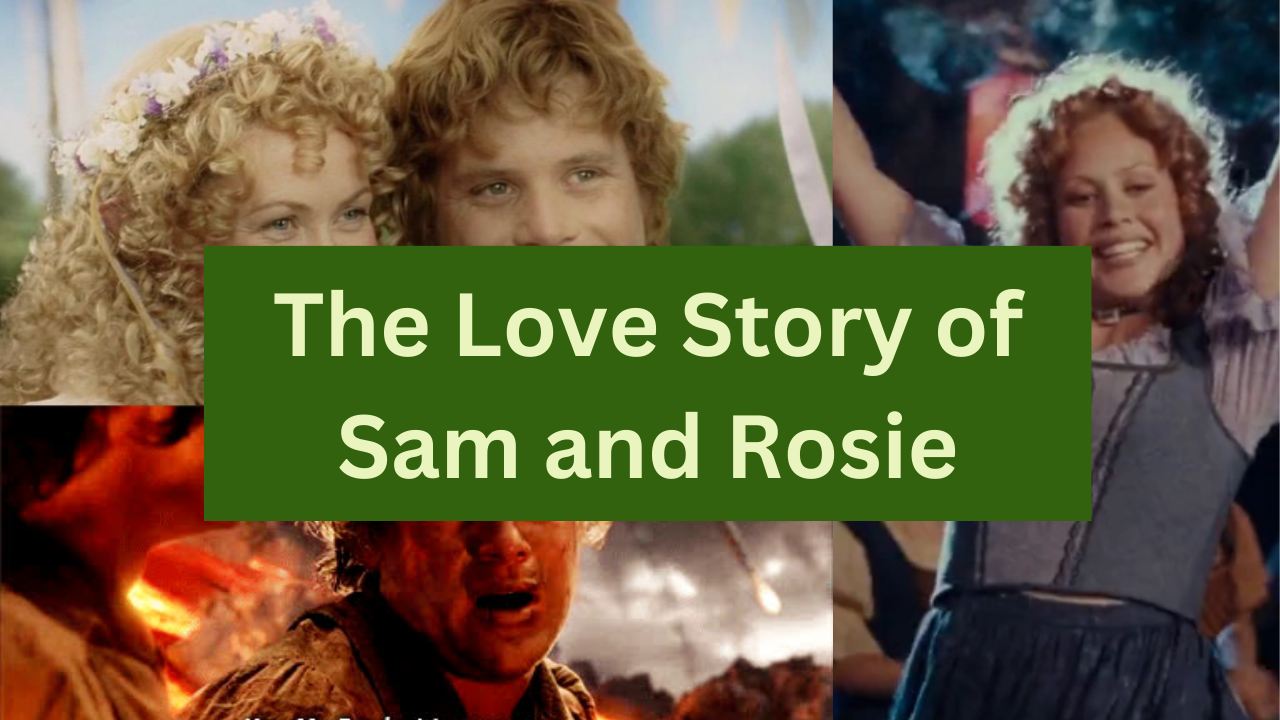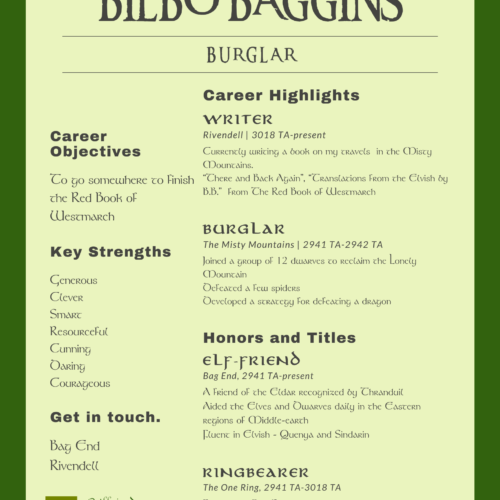It’s believed commonly that Men are Eru’s favorite because of their gift of mortality. However, it is not clear that Eru designated Men to be his favorite over the immortal Elves – or even vice versa.
Death is their fate, the gift of Ilúvatar, which as Time wears even the Powers shall envy.
J.R.R. Tolkien – The Silmarillion
However, it seems that Tolkien meant for Eru to have different characters show different traits, much like the differences in humanity in our world, as Men would also come to envy the Elves for their immortality.
Gift of death vs immortality
“Then [Eru] spoke and said: ‘Behold I love the Earth, which shall be a mansion for the Quendi and the Atani! But the Quendi shall be the fairest of all earthly creatures, and they shall have and shall conceive and bring forth more beauty than all my Children; and they shall have the greater bliss in this world. But to the Atani I will give a new gift.’ Therefore he willed that the hearts of Men should seek beyond the world and should find no rest therein; but they should have a virtue to shape their life, amid the powers and chances of the world, beyond the Music of the Ainur, which is as fate to all things else; and of their operation everything should be, in form and deed, completed, and the world fulfilled unto the last and smallest.
The Silmarillion III Quenta Silmarillion Chapter 1: “Of the Beginning of Days”
It seems that Tolkien had the Quendi, or Elves, to have the greater bliss in Middle-earth – mainly of immortality, though they would eventually also leave Middle-earth for the Undying Lands at the end.
However, the Men were also rewarded a different gift, but also equal – that they would seek beyond Middle-earth after death in which the Elves would not know about.
The Númenóreans – mortal men – would notice and wish for the life of the Elves and their immortality. They believe that it would give them more time for their crafts, but it could also be due to the fact they are “imitation elves,” which makes sense given the line in which they came from. It can also be given that Elros, the first king of the Númenóreans, was half-Elven, and chose to be mortal, but still had Elvish blood. Thus they are more in tune with the lives of the Elves than other mortal men would be – causing the later Númenóreans to desire the lifestyle of an Elf.
Time scales
“Few lessons are taught more clearly in them [fairy-stories] than the burden of that kind of immortality, or rather endless serial living to which the fugitive [from death] would fly.” (On Fairy Stories)
This is thought to be evidence of Eru’s – or Tolkien’s favoritism towards men for their mortality. However, it could also be why the Elves would eventually go to the Undying Lands.
However, this separation from the soul and body does not occur in the Elves as they go to the Undying Lands, so it is thought that they would not experience the total separation from their life that the Men would experience. However, their time scales appear to be similar but just at different rates, which would suggest that both Elves and Men would get used to their respective norms of lifespan.
“This speed of growth and rate of ageing had nothing to do with the perception of time. As the Eldar say of themselves (and this may in some degree also be true of Men) when persons (in whole being fëa and hröa) are fully occupied with things of deep natural concern and of delight to them, and are in great bliss and health, Time seems to pass quickly and not the reverse.” (NoME, “Time-scales”)
Despite their differences in lifespan, their concept of speed of life remains similar. Most Elves would leave Middle-earth during their period of decline. However Men go through the same process as the Elves but much faster.
“And then suddenly I beheld as a vision Arda Remade; and there the Eldar completed but not ended could abide in the present for ever, and there walk, maybe, with the Children of Men, their deliverers, and sing to them such songs as, even in the Bliss beyond bliss, should make the green valleys ring and the everlasting mountain-tops to throb like harps.’
Then Andreth looked under her brows at Finrod: ‘And what, when ye were not singing, would ye say to us?’ she asked.
Finrod laughed. ‘I can only guess,’ he said. ‘Why, wise lady, I think that we should tell you tales of the Past and of Arda that was Before, of the perils and great deeds and the making of the Silmarils! We were the lordly ones then! But ye, ye would then be at home, looking at all things intently, as your own. Ye would be the lordly ones. “The eyes of Elves are always thinking of something else,” ye would say.
But ye would know then of what we were reminded: of the days when we first met, and our hands touched in the dark. Beyond the End of the World we shall not change; for in memory is our great talent, as shall be seen ever more clearly as the ages of this Arda pass: a heavy burden to be, I fear; but in the Days of which we now speak a great wealth.”
History of Middle-earth X Morgoth’s Ring Part 4: “Athrabeth Finrod ah Andreth”
Finrod was speaking on his brother, Aegnor’s behalf as elves, while Andreth, a mortal, would be pressed for time since her youth is much shorter than Aegnor’s and Finrod’s.
Tolkien’s Letters
In the Waldman Letter, Tolkien says he had meant for Elves to be the center of the Silmarillion, which concerns events in the First and Second Ages. Thus, the Elves were the “firstborn,” and the Men would come shortly after.
“The doom of the Elves is to be immortal, to love the beauty of the world, to bring it to full flower with their gifts of delicacy and perfection, to last while it lasts, never leaving it even when ‘slain,’ but returning – and yet when the Followers come, to teach them, and make way for them, to ‘fade’ as the Followers grow and absorb the life from which both proceed. The Doom (or the Gift) of Men is mortality, freedom from the circles of the world. Since the point of view of the whole cycle is from the Elvish, mortality is not explained mythically: it is a mystery of God of which no more is known than that ‘what God has proposed for Men is hidden’: a grief and an envy to the immortal Elves.” (Letter # 131)
“[They are] quite different in form, of course, to that of the Christian myth. These tales are ‘new,’ they are not directly derived from other myths and legends, but they must inevitable contain a large measure of ancient wide-spread motives or elements.” (Letter # 131)
While different in form, it also contains some widespread motives and elements, such as the idea that the Christian God does not favor one person over the other while allowing mankind to each have different experiences. Likewise, Eru didn’t particularly favor Elves nor Men, though he has appointed different fates for them.
Lastly, both Elves and Men have a downfall. For the Elves it is:
the fall of the most gifted kindred of the Elves,
exile from Valinor (a kind of Paradise, the home of the Gods) in the farthest West,
their re-entry to Middle-earth, the land of their birth but long under the rule of the Enemy, and their strife with him, and
The power of Evil still visibly incarnate, and the events mainly based on the fate and significance of the Silmarilli, or the Primeval Jewels.
For the men it is that they fall under the domination of the Enemy and some would repent – which is shorter because the Men came after the Elves.


